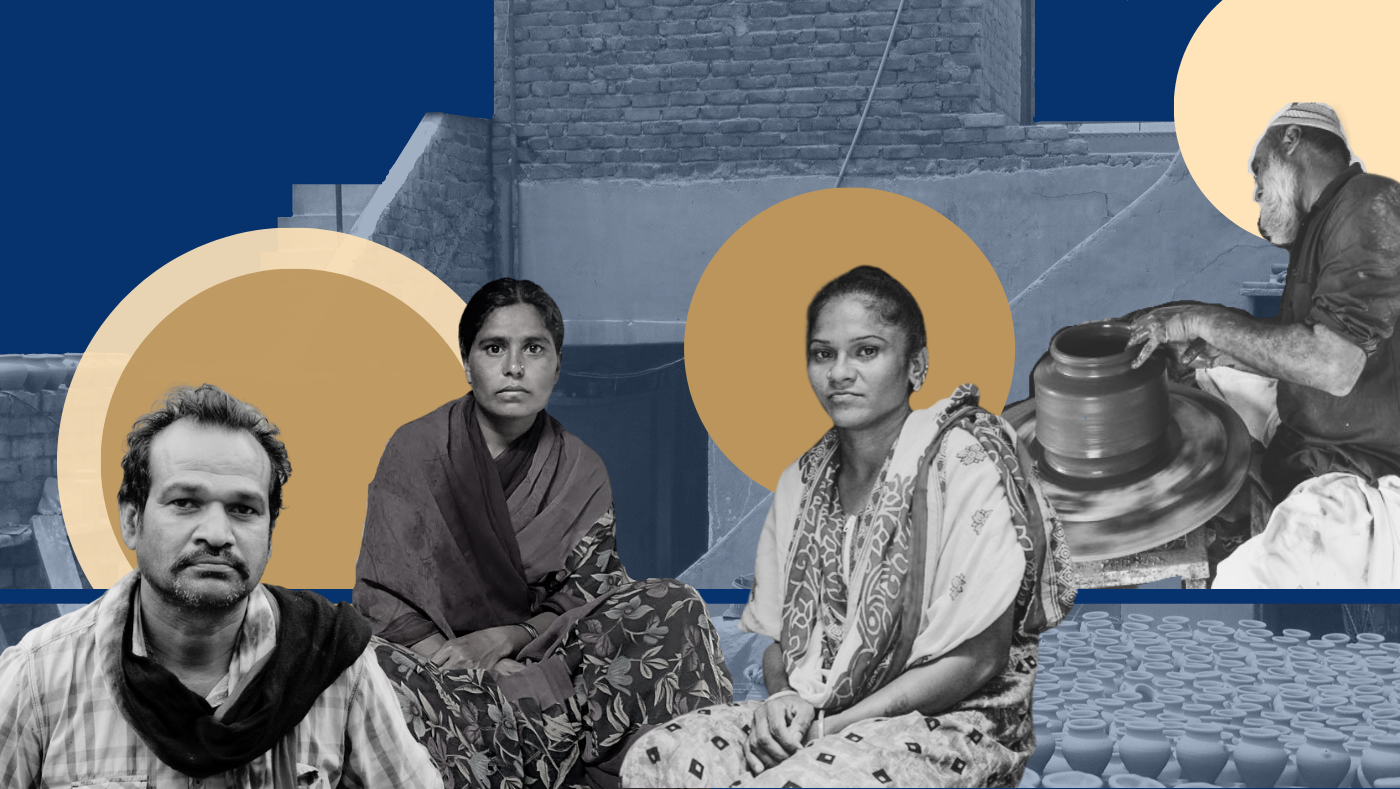The first covid-19 lockdown on March 25, 2020, triggered distress for millions of ordinary Indians.
“We went from a handful to nothing.” Construction labourers in Jammu, Mohan Lal and his wife Narmadabai saw their savings fall to Rs. 2,000 at the start of the lockdown. They had to borrow money from their contractor to buy rations and other essentials.
Overall, the unemployment rate in India shot up to 23 per cent in April and May 2020 – more than three times the rate (7.3 per cent) in February 2020, noted the State of Rural and Agrarian India Report 2020 . Before the pandemic (2018-19), it had hovered around 8.8 per cent.
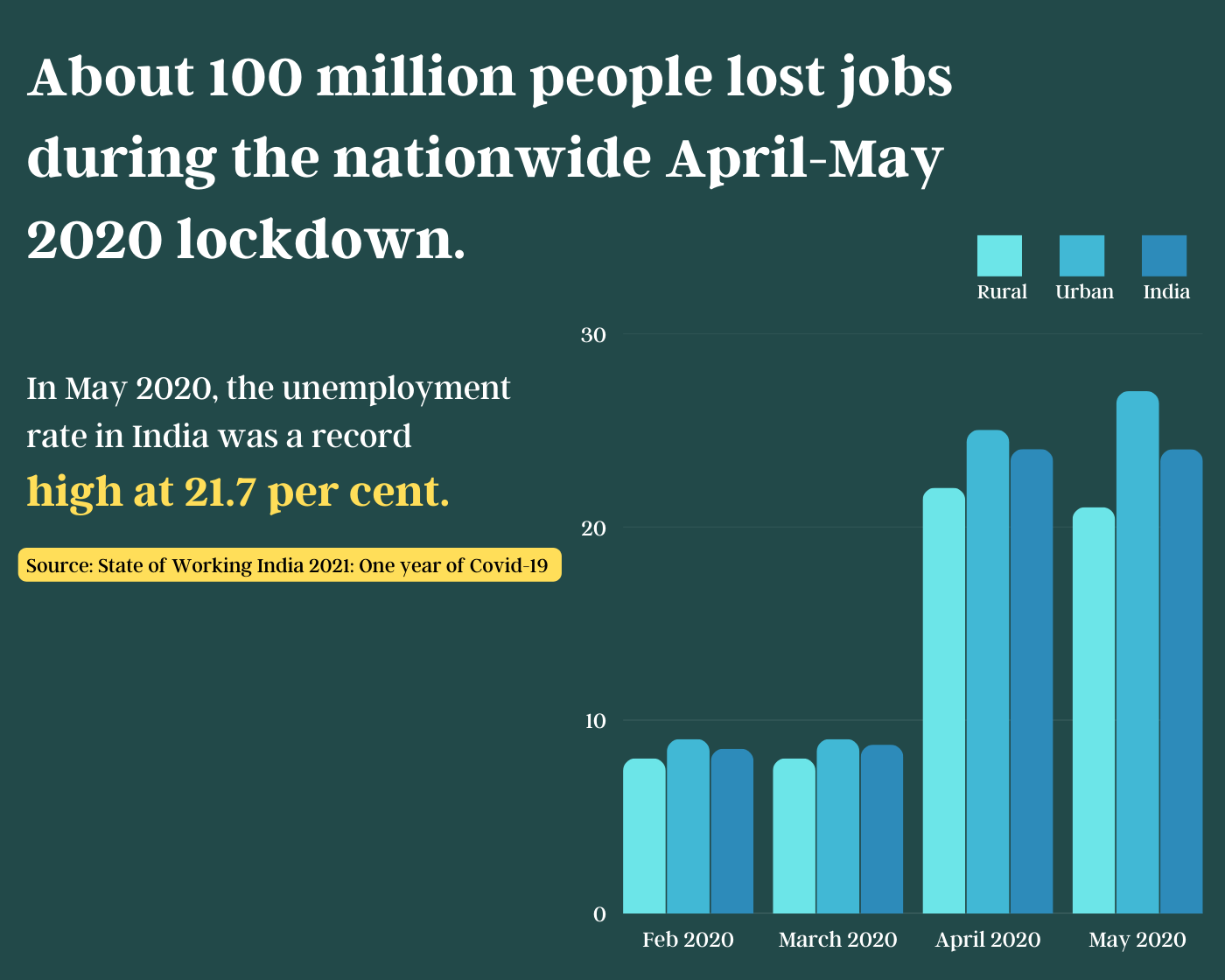
The lockdown resulted in millions of workers losing their jobs overnight; migrant workers were compelled to return home.
“We returned home a month after lockdown,” recalled Archana Mandwe of Beed, Maharashtra. Faced with depleting savings and no income , the family of five had no option but to return to their village. With bans on travel, they could only move at night – travelling 200 kilometres from Aurangabad on a single motorcycle.
PARI has reported more than 200 stories about the impact of covid-19 on workers in India. The PARI Library , in its sections on Covid-19 and Labour , supplements these stories with research and reports examining the state of workers in India and the struggles they face. These include publications by the government, independent organisations and UN agencies.
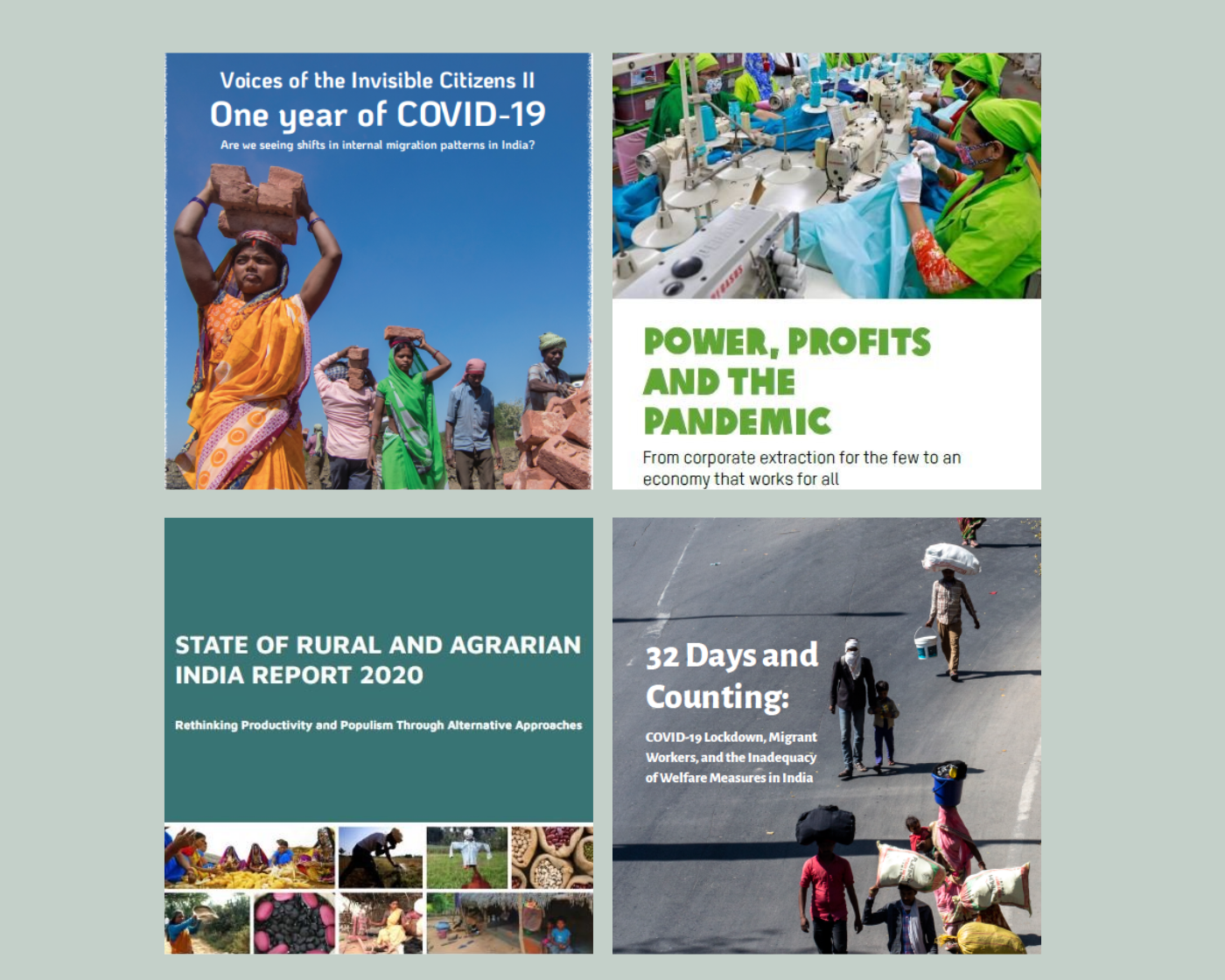
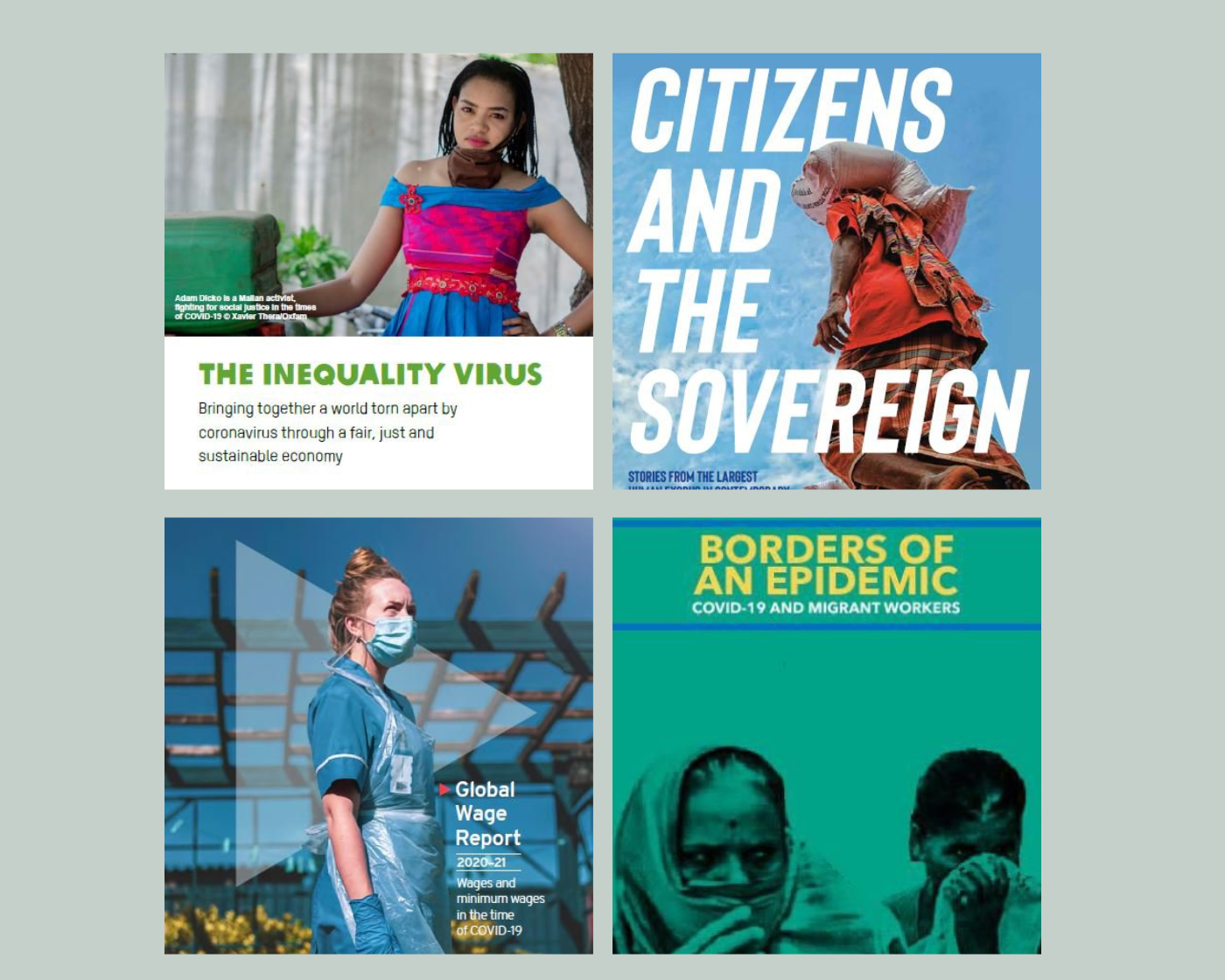
The International Labour Organization’s (ILO) Global Wage Report 2020-21 , recorded unparalleled levels of unemployment across the world. It states that the covid-19 induced fall in working hours equalled a staggering 345 million full-time jobs. A result of this was a 10.7 per cent decline in labour incomes worldwide.
Meanwhile, life was going great for billionaires across the world who saw their wealth increase by a total of 3.9 trillion dollars between March and December, notes Oxfam’s 2021 report The Inequality Virus . The ILO report points to the plight of people on the other end of the spectrum – informal workers – saw their earnings fall by a fifth (22.6 per cent) in 2020.
Sheela Devi, a potter from Delhi, saw her family’s earnings fall from Rs. 10,000 to 20,000 (during festivals) to a mere Rs. 3,000 to 4,000 in the early months of the pandemic. While potter Kumbhar Ismail Hussain from Kachchh, Gujarat had no sales at all during April-June 2020.
“For now, my two children and I are living off the ration rice and lentils. But I don’t know how long we can go on like this,” said M. Nalluthai, a Karagattam performer from Madurai, Tamil Nadu, who also saw her work and income adversely affected due to the pandemic.
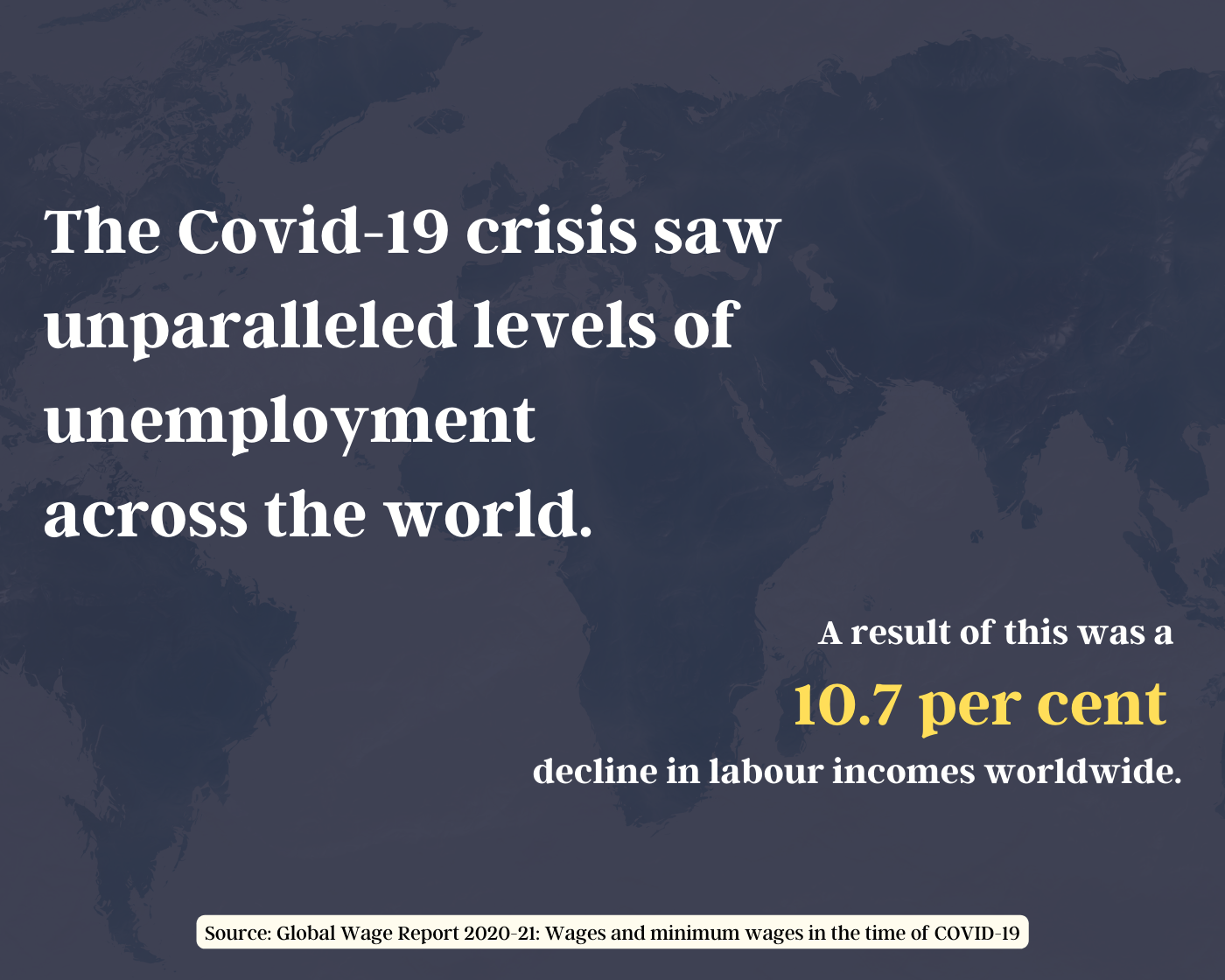

Impact of Covid 19 National Lockdown on Women Domestic Workers in Delhi revealed that 83 per cent of the domestic workers surveyed in May 2020 had experienced economic difficulties during the lockdown. Around 14 per cent were unable to meet their household expenses and had to borrow money from relatives and neighbours.
Domestic workers in Pune were in the same boat. “We all exist hand-to-mouth and fill our stomachs by doing domestic work. But now there’s no work, so where will we get money?” said Aboli Kamble.
Women made up 20 per cent of India's workforce before covid-19 and accounted for 23 per cent of pandemic-induced job losses, states Oxfam’s report Power, profits and the pandemic . They were an invaluable part of the ‘essential’ workforce during the pandemic as well.
Shahbai Gharat, an accredited social health activist or ASHA from Beed district in Maharashtra, went door to door fulfilling her usual duties in addition to tracking covid-19 cases. When her family members tested positive for the virus, she had to sell her farmland and her jewellery to pay for their treatment. The only aid she received (between March 2020 and August 2021) for her consistent hard work were 22 disposable masks and five N95s . “Do you think the returns are fair in our job when you consider the risk involved?”
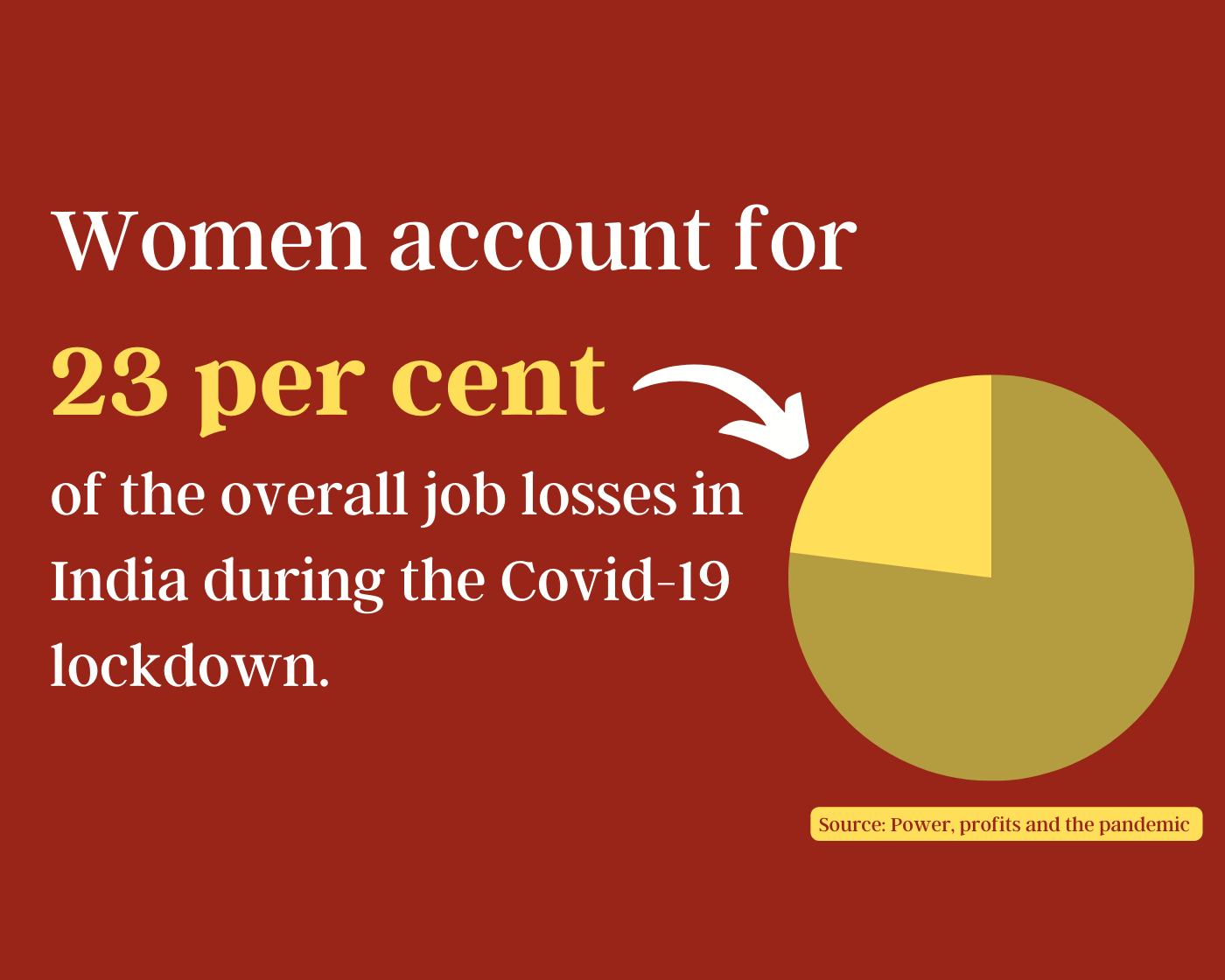
The position of workers remained vulnerable a year after the start of the pandemic. Voices of the Invisible Citizens II: One year of Covid-19 reported that 73 per cent of workers were finding it difficult to secure jobs since the pandemic. And 36 per cent reported reduced wages.
The Parliament passed the Code on Social Security, 2020 , aimed to “amend and consolidate the laws relating to social security with the goal to extend social security to all employees and workers either in the organised or unorganised or any other sectors.” However, workers across India continue to find basic amenities inaccessible.
The PARI Library is a place to better understand the situation on the ground and examine the gaps in the implementation of government policies.
Cover design: Swadesha Sharma
